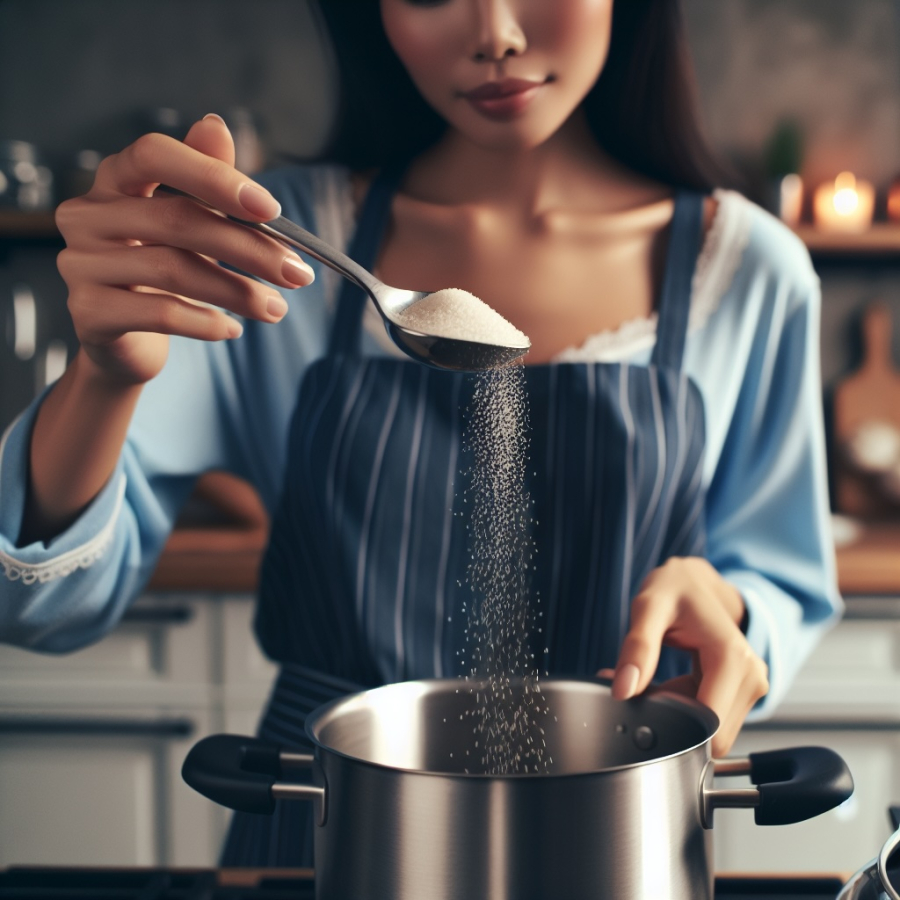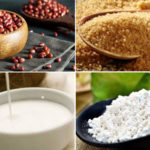The Art of Salting Right
Salt is an essential seasoning in every kitchen, requiring skillful use to enhance the flavors of dishes. Each dish has its own salting secrets: for dishes made from vegetables, salting early helps distribute the flavor evenly, while soups or boiled vegetables need to be salted just before finishing the cooking process to preserve their nutrients and natural aroma.

Small Tips for Seasoning with MSG
MSG, often added to dishes to enhance flavors, needs to be used with finesse to ensure both healthiness and deliciousness. To maximize the effectiveness of MSG without compromising nutritional balance, you should dissolve it in a small amount of water before combining it with the dish. This helps the MSG distribute evenly and blend more easily, while avoiding the risk of burnt or concentrated flavors in one spot.
Using Sugar in Braising, Frying, and Deep-frying
Sugar not only adds sweetness but also balances and enhances the flavors of dishes. When marinating food for braising, frying, or deep-frying, adding sugar helps create a beautiful caramel color and intensify the taste. However, to avoid the risk of burning due to sugar caramelization at high temperatures, you need to adjust the heat to low and even, ensuring slow and even dissolution of the sugar onto the food. This results in a glossy, enticing color without the risk of burning.

Effective use of Fish Sauce
Fish sauce, the essence of the sea, is not only a traditional condiment but also the soul of many Vietnamese dishes. With its natural umami flavor from amino acids produced during the fish fermentation process, fish sauce brings a rich, unique taste.
To preserve this flavor, marinating or adding fish sauce needs to be done carefully: it is not advisable to let the food come into contact with fish sauce for too long before cooking, as this can lead to the degradation of amino acids, resulting in the loss of the delicious aroma. Fish sauce is often added towards the end of the cooking process to preserve the full flavor and avoid degradation when exposed to high temperatures for too long.

Pepper Marinating Tips
Pepper is not only a common spice but also the “key” to unlock unique flavors in many dishes, from meat to fish. However, the habit of marinating with pepper before cooking needs to be reconsidered. The high temperature during cooking can destroy the essential oils in pepper, causing the loss of its distinctive aroma and posing health risks.
To overcome this, sprinkle pepper on the dish immediately after it is cooked and the stove is turned off. This method not only helps the dish retain the fragrant aroma of pepper but also maximizes the health benefits of this spice.



































